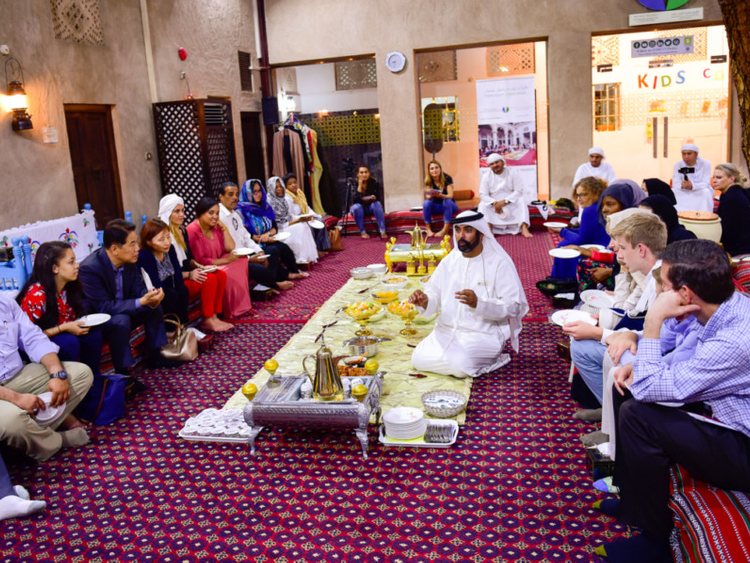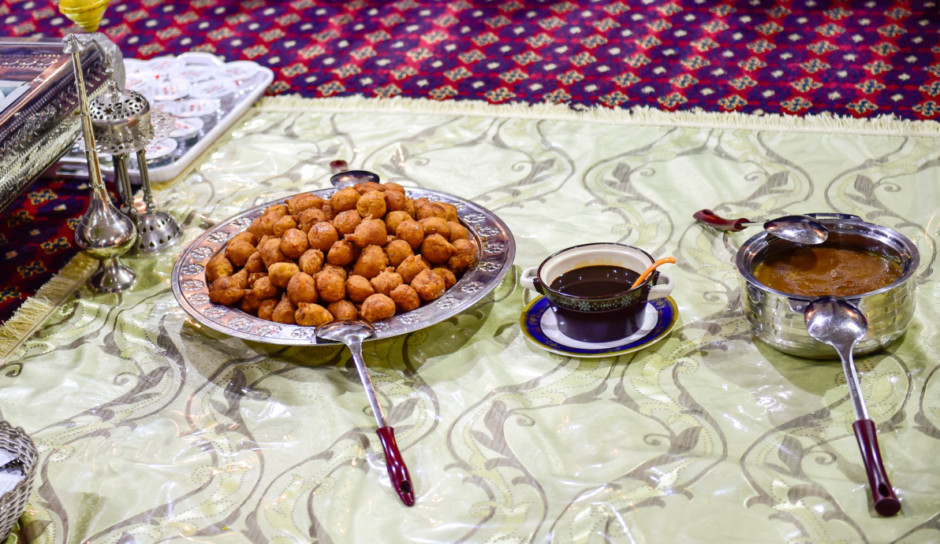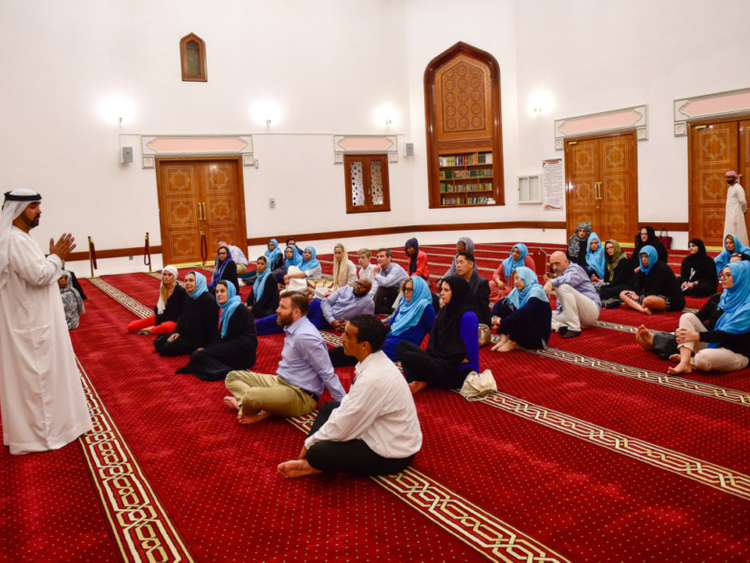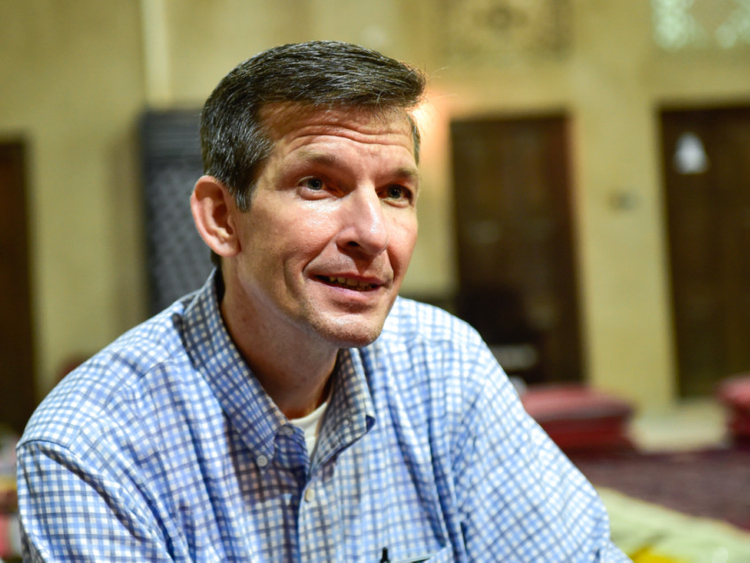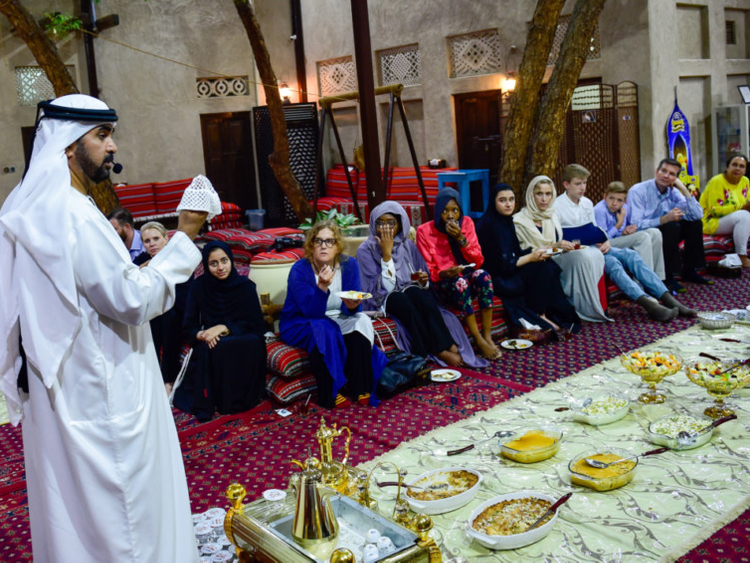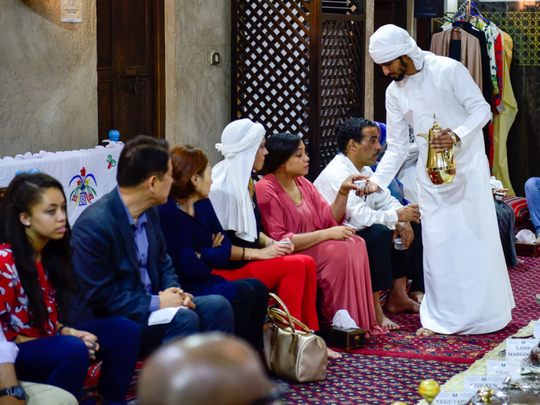
In the heart of Dubai’s Al Fahidi neighbourhood, one of the oldest residential areas of the city, Ahmad Al Jaffla proudly guides a group of 20 people around the Shaikh Mohammad Centre for Cultural Understanding (SMCCU). It’s iftar time and there’s a feeling of anticipation floating in the air. Dressed up in pristine white kandoras, Al Jaffla, who’s the designated ‘presenter’ of the evening, and other volunteers of the SMCCU gather around the majlis to perform Maghrib prayer.
The confusion on the faces around me suggested that not many tourists knew how to react nor what to do at that specific moment. But Al Jaffla breaks the ice and graciously invites everyone to join a sumptuous iftar table as he and his colleagues end their fast.
The majilis can hold up to 35 people comfortably at a time. Well-decorated with beautiful Arabic elements, a small fountain on the side of the room harks back to the days even before the pearls where discovered and the cosmopolitan city was built. I was asked to remove my shoes and take a seat on the comfortable traditional-motif decorated pillow. There were so many people around me, but all I could think about was the smell of the incredible food and the iftar.
I took a bite of the tender lamb fareed, slowly cooked to perfection, and couldn’t resist the slightly spiced beef harees, which Al Jaffla highly recommended. I also helped myself to some vegetable margooga and enjoyed the juicy broth as well as the chicken salona served with steamed white rice. Every single bite I took was followed by a descriptive story about the specific foods. Stories about places and the traditions of the UAE blended with the flavours on offer.
Before we even finished the meal, guests were eager to ask questions.
”What kind of spices do Emiratis like to use for their cooking? Where does one buy camel milk? And how much does it cost?”.
Following an enlightening discussion, we were taken for a pleasant walk through Al Fahidi’s historical neighbourhood to Al Farooq Mosque. An enchanting place filled with spiritual vibes, visitors are taught about Islam and everyone is encouraged to ask questions. At the end of the session, we returned to the majilis to indulge in delicious sweets such as crusted omali, brown-coloured cream caramel and rosewater mahalabia, just to name a few.
The evening was wrapped up with a cup of lightly roasted coffee, tea and chocolates.
“To become a better leader, we bring our doctoral students to different countries to taste, feel, smell and embody the culture of other countries. We cannot make good decisions if we don’t truly experience other cultures,” said Helen Easterling Williams, dean of the Graduate School of Education and Psychology at Pepperdine University, California, one of the guests of the evening. “Here in the UAE, I have experienced what I know to be the God’s world, the kingdom of God, and all God’s people in one place, on one accord. The world goes in many direction, we focus on many different things, trying to be different but at the root of everything is love.”
Another guest, Mathew James, a doctorate student in Global Leadership in Change from Dallas, Texas, said he was inspired by the experience.
“I didn’t know what to expect. If you don’t understand somebody else you will never meet their minds,” he said. “Especially in America, where the media controls our perceptions pretty heavily. To come and have this experience, I think, is very enlightening. Everything from discussions of the outfits and the mosque and why you are doing certain things ... I thought it was very inspirational.”
The details
Iftar at the Shaikh Mohammad Centre for Cultural Understanding is priced at Dh185. Group bookings for large groups of 90 people can also be arranged. Timings are from 7 to 9pm. Call 04-3536666.
— Corina Coda is an intern at Gulf News.



